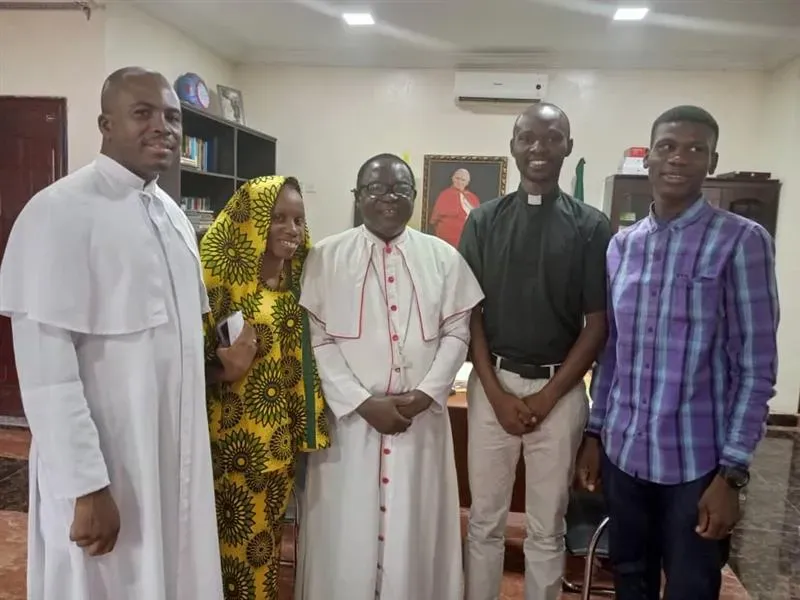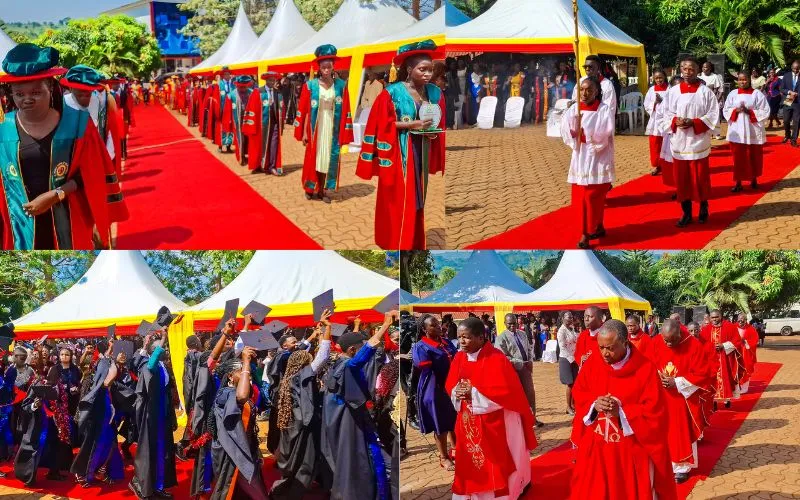“Whoever dwells in the shelter of the Most High
will rest in the shadow of the Almighty.
I will say of the LORD, ‘He is my refuge and my fortress,
my God, in whom I trust.’
Surely he will save you
(Story continues below)
from the fowler’s snare
and from the deadly pestilence.”
“The words calmed us down, making us feel like we were covered from danger,” he said.
Priests and clergy of other faiths increasingly have become targets of kidnapping gangs, which has made Nigeria the most dangerous country in the world for Christians, according to Open Doors UK. As many as 16 Christians are killed for their faith every day in Nigeria, the humanitarian nongovernmental organization has reported.
So far this year in Nigeria, at least four priests have been murdered and 22 kidnapped for ransom. In 2021, approximately 6,000 Christians were murdered, chiefly in the 12 states of the Middle Belt.
During their stay in the bandit encampment in Birnin Gwari, the group Ojapah was part of received little to eat except rice, beans, palm oil, and water. The five captives were joined by other victims, including a Protestant pastor and three members of his congregation, Ojapah said.
The group of abductees sat for hours in silence and listened to the sounds of the forest, which is home to monkeys, warthogs, wolves, a profusion of birds, scorpions, and deadly vipers. When clouds opened and poured down rain, the bandits moved to the shade of trees with dense foliage, but the abductees were chained to their hut, which leaked cold rain on them for hours, Ojapah said.
During their trek through the forest, they had to drink from any available creek or puddle. At night they shivered through temperatures in the low 60s. “We all got colds,” he said.
“The bandit leader told me their group was Ansaru, the name of a jihadist group that had split away from Boko Haram in 2012,” Ojapah said.
After contacting a priest in Sokoto using Ojapah’s cell phone, the bandits settled down for a long wait until ransom could be obtained. The bandits passed their days smoking marijuana and taking drugs, Ojapah said, whereas the priests recited Scripture and prayed in soft voices.
“Do you smoke weed?” the bandit leader asked, telling him, “I can’t even eat breakfast without taking drugs first.”
‘They will kill us’
The bandit gangs reportedly victimize Muslims and Christians alike, but Ojapah said the gang leader’s own words show otherwise.
“There was a Muslim captive among us named Alhaji Nura from Kano. But he was finally let go without any ransom,” said Ojapah, who speculated that the man could have been a spy.
“The bandits told us that they see the extermination of Christians as their religious mission,” he said. “After a village has been burned and raided three times, the residents just don’t want to return to it, and the jihadist Muslims see that as God’s blessing upon their crimes.”
“After 30 days, our captors said all but two of us were coming home,” Ojapah said. “I had a sinking feeling when they said that I and Hassan would be held back. ‘They will kill us,’ I thought.”
Hassan said they probably wanted to try for more money. On the 33rd day of captivity, they boarded motorbikes and were driven to the small rural town of Yakawada in Giwa County, approximately 35 miles from their rectory in Katsina.
“Our relatives were waiting for us there,” he said. “Was a ransom paid? It’s against the law in Kaduna to pay ransoms to bandits.”
The diocesan media director in Sokoto was quick to fire off a jubilant press release that day.
“With hearts full of joy, we announce that our brethren Fr. Stephen Ojapa, Fr. Oliver Okpara, Mr. Hassan Hassan and Ms. Ummie Hassan who were abducted by gunmen at midnight of 25th May, 2022, in the rectory of St. Patrick’s Catholic Church, Gidan Maikambo, Kafur LGA of Katsina State, have all gained freedom,” Father Chris Omotosho, communications director for the Diocese of Sokoto reported in a statement on June 27.
Ojapah reflected with hope on his time in captivity.
“I didn’t think I could ever forgive my abductors, but after a few weeks, I did, and doing so deepened my love for Jesus,” Ojapah said, adding: “Religious people say God’s ways are inscrutable. God writes straight on a crooked line.”








